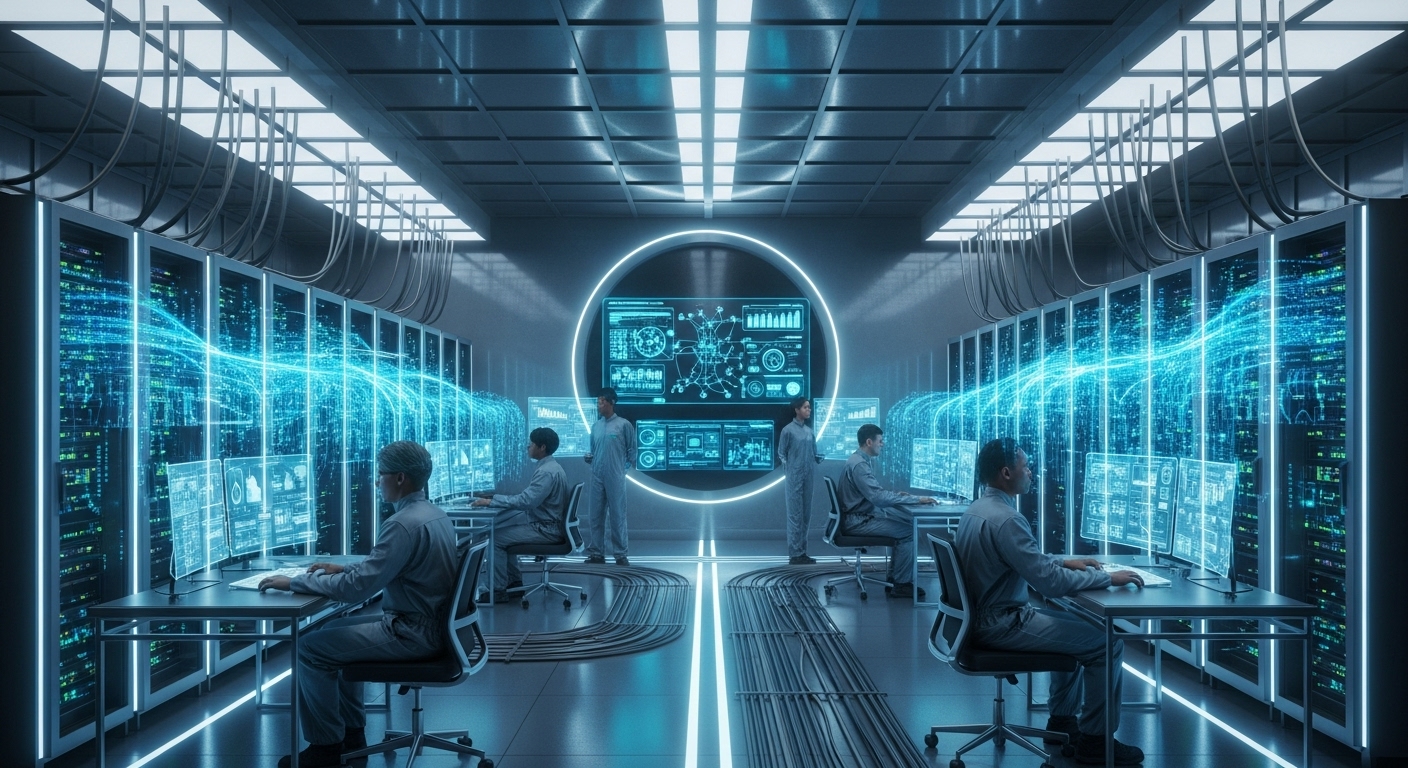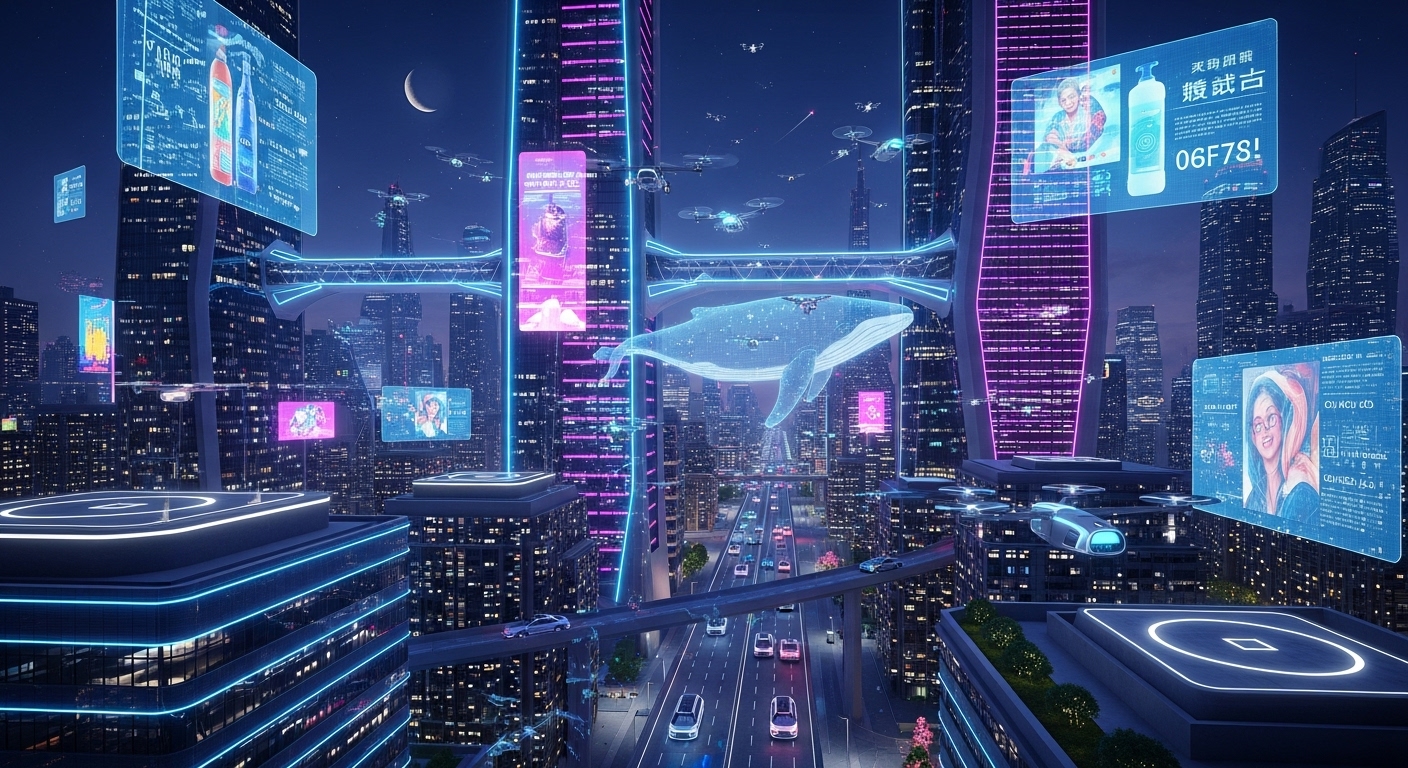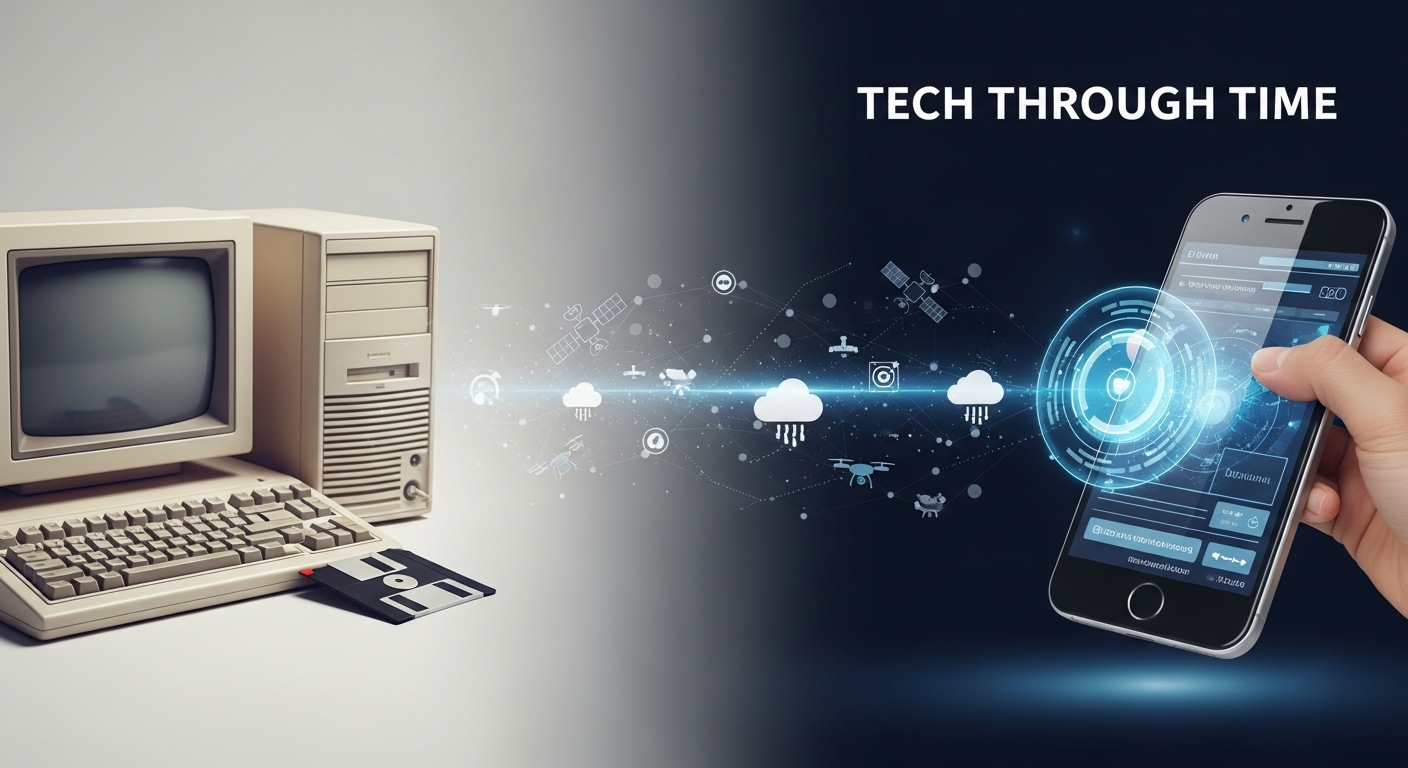Technology is no longer just a part of our lives—it has become the foundation on which society operates. From the smartphones in our pockets to the artificial intelligence that powers our industries, technological advancements are driving change at an unprecedented pace. As we continue to innovate and push boundaries, it’s important to understand how these changes are influencing everything from our daily routines to our future. In this blog post, we’ll explore how technology is shaping our present and what it means for the world of tomorrow.
The Rise of Artificial Intelligence: Transforming Industries
One of the most significant technological developments in recent years has been the rise of artificial intelligence (AI). What was once a concept confined to science fiction is now a driving force in industries ranging from healthcare to finance. AI is transforming the way we approach problems, make decisions, and interact with technology.
In healthcare, AI algorithms are revolutionizing diagnostics, helping doctors detect diseases faster and more accurately. In finance, AI-powered tools are improving fraud detection and automating trading decisions, making markets more efficient. Meanwhile, in industries like manufacturing and logistics, AI-driven robots are streamlining operations, reducing human error, and cutting costs. As AI continues to evolve, its potential to shape industries is virtually limitless, from personalized education to autonomous transportation.
The Internet of Things: Connecting Everything, Everywhere
The Internet of Things (IoT) has taken connectivity to a whole new level. In simple terms, IoT refers to the network of physical objects—such as household appliances, vehicles, wearable devices, and industrial machines—that are embedded with sensors and connected to the internet. This interconnectedness allows for real-time data exchange and remote control, offering us unprecedented convenience and efficiency.
Smart homes are a perfect example of how IoT is changing everyday life. Thermostats that learn your preferences, refrigerators that notify you when you’re running low on groceries, and voice-controlled assistants are all powered by IoT technology. On a larger scale, cities are beginning to integrate IoT systems to improve infrastructure, reduce energy consumption, and enhance public safety. As IoT expands, we can expect even greater levels of automation and personalization in all aspects of our lives.
The Future of Work: How Technology is Redefining Careers
The way we work is undergoing a profound transformation, driven largely by technology. Remote work, once a niche arrangement, has become mainstream thanks to tools like Zoom, Slack, and Microsoft Teams. The COVID-19 pandemic accelerated this shift, forcing companies and employees to adapt to digital workflows, but even as the world reopens, the remote-first culture is here to stay.
Beyond remote work, automation and AI are reshaping the nature of jobs themselves. While some fear that AI will replace human workers, the truth is that technology is creating new opportunities. Automation is handling repetitive tasks, allowing workers to focus on higher-level, more creative responsibilities. Fields like data science, cybersecurity, and digital marketing are growing rapidly, creating entirely new career paths. As technology continues to evolve, lifelong learning will become crucial for staying relevant in an ever-changing job market.
The Cloud: Powering a Digital-First World
Cloud computing has become the backbone of modern technology, enabling businesses, governments, and individuals to store and access data from anywhere in the world. Cloud platforms like Amazon Web Services (AWS), Microsoft Azure, and Google Cloud have revolutionized the way we think about data storage and computing power. Instead of relying on physical servers and infrastructure, companies can now scale up or down in real time, only paying for what they use.
The shift to the cloud has also democratized access to powerful computing resources. Startups and small businesses now have access to the same tools and technologies that were once only available to large enterprises, leveling the playing field. Additionally, the cloud has made it easier for businesses to collaborate and innovate. With remote teams working from different corners of the world, the cloud provides a seamless platform for sharing files, running applications, and managing projects.
The Impact of 5G: Faster, Smarter, Connected
The rollout of 5G networks promises to be a game-changer for technology. With download speeds up to 100 times faster than 4G, 5G has the potential to transform everything from mobile communication to autonomous vehicles. But speed is just one part of the story—5G also brings lower latency, meaning devices can communicate in near real-time. This is crucial for applications like augmented reality (AR), virtual reality (VR), and remote surgery, where even a slight delay can have significant consequences.
The ultra-fast, low-latency capabilities of 5G will also fuel the growth of IoT, allowing for more devices to be connected simultaneously without compromising performance. Smart cities, healthcare innovations, and industrial automation are just some of the sectors that will benefit from 5G’s capabilities, ushering in a new era of connectivity and digital transformation.
Cybersecurity: Navigating the Digital Threat Landscape
As technology advances, so do the threats that come with it. Cybersecurity is now one of the most critical issues facing businesses and individuals alike. With the increasing amount of sensitive data being stored online, protecting this information has never been more important. Hackers and cybercriminals are becoming more sophisticated, launching attacks that range from data breaches to ransomware.
In response, companies are investing heavily in cybersecurity technologies such as encryption, multi-factor authentication, and AI-driven threat detection. Governments are also tightening regulations around data protection, with laws like the European Union’s General Data Protection Regulation (GDPR) setting global standards for how companies handle personal data.
As our digital footprint expands, so does the need for robust cybersecurity measures. Ensuring the safety of data and privacy will continue to be a major concern, driving innovation in security technologies and strategies.
Ethical Considerations: The Responsibility of Technological Innovation
While technology has undoubtedly brought about tremendous benefits, it also raises important ethical questions. The rapid pace of innovation often outpaces the ability of governments and regulatory bodies to keep up, leaving gaps in areas like data privacy, AI ethics, and the impact of automation on jobs.
As AI and machine learning become more integrated into decision-making processes, concerns around bias and fairness are growing. For instance, algorithms that are trained on biased data can perpetuate discrimination, especially in areas like hiring, lending, and law enforcement. As technology evolves, it’s essential for developers, policymakers, and society to ensure that ethical considerations are built into the fabric of innovation.
Furthermore, the environmental impact of technology cannot be ignored. The energy consumption of data centers, the growing e-waste problem, and the carbon footprint of blockchain mining are all important issues that need to be addressed for technology to continue advancing in a sustainable way.
Conclusion: Embracing a Tech-Driven Future
The technological revolution is far from over, and we’re only scratching the surface of what’s possible. From AI and the Internet of Things to 5G and the cloud, technology is reshaping the world at an unprecedented rate. As we move into a more digital-first future, it’s important to embrace these advancements while also considering their ethical, social, and environmental implications.
The key to navigating this new era will be balance—adopting technology that improves lives and drives progress, while ensuring that it is done responsibly. The future is digital, and with the right approach, we can harness technology to create a smarter, more connected, and more sustainable world for generations to come.



